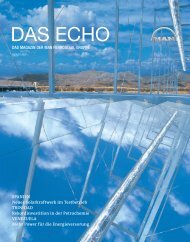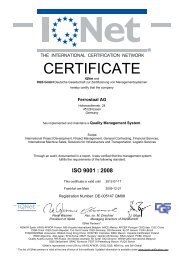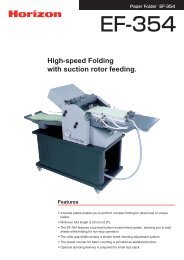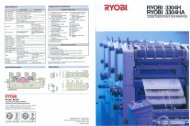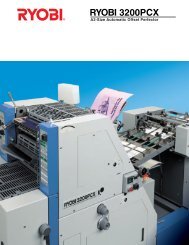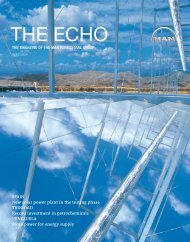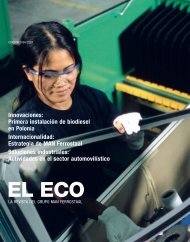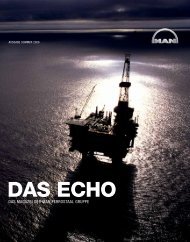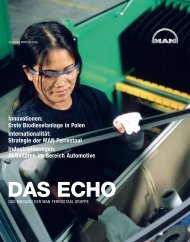THE ECHO - Ferrostaal
THE ECHO - Ferrostaal
THE ECHO - Ferrostaal
Create successful ePaper yourself
Turn your PDF publications into a flip-book with our unique Google optimized e-Paper software.
Most of the remaining two thirds of the costs of a new plant go<br />
into energy supply, chemical recovery, water preparation and<br />
wastewater treatment. Auxiliary plants serve to protect the environment<br />
and play an important role in the construction of a new<br />
plant. Investors must be able to prove that the new plant avoids<br />
harming the environment, that chemical waste from pulp production<br />
is recycled in an environmentally sound way, and that waste<br />
water is cleaned and treated before it is returned to water sources.<br />
RWE fulfilled all of these requirements in the last orders they<br />
completed. This is demonstrated by the plants in Musi<br />
(Indonesia), Stendal (Saxony-Anhalt) and the Estonian Cell plant<br />
in Estonia. The water used for at the Stendal plant is actually<br />
cleaner overall when it is returned to the river Elbe than when it<br />
is taken out.<br />
03<br />
<strong>THE</strong> <strong>ECHO</strong> 1/2006 25<br />
RWE, in whose footsteps MAN <strong>Ferrostaal</strong> is now following and<br />
whose references <strong>Ferrostaal</strong> has acquired, could always rely on the<br />
expertise of KSH. KSH is one of the few engineering companies<br />
worldwide that are capable of planning and optimising an entire<br />
plant, including the core components and auxiliary plants. MAN<br />
<strong>Ferrostaal</strong> will continue to work with KSH as an engineering<br />
partner and will reinforce this collaborative partnership by taking<br />
a minority interest in KSH and a seat on its board of directors.<br />
Ulrich Bange



